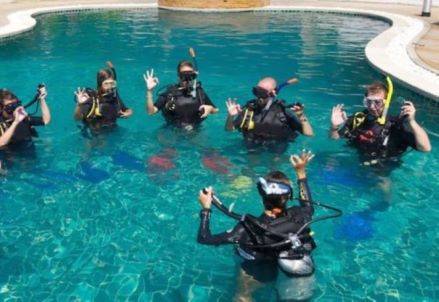Dive Health and Safety: Essentials Every Diver Should Know
At Lost Reef Adventures, our top priority is your underwater safety. Whether you’re a beginner or a seasoned diver, understanding and practicing dive health and safety can make the difference between a breathtaking dive and a hazardous one. This guide covers essential tips to help you stay safe and enjoy every dive with confidence.
1. Prioritize Pre-Dive Health Checks
Before each dive, assess your physical condition. Are you well-rested, hydrated, and free from colds or congestion? Even minor health issues can impact your ability to equalize pressure and maintain buoyancy. It’s always best to err on the side of caution.
According to Divers Alert Network (DAN), a significant number of dive accidents are preventable with proper pre-dive planning and health assessments.
2. Understand and Prevent Decompression Illness (DCI)
Decompression illness, commonly known as “the bends,” can occur if you ascend too quickly or exceed no-decompression limits. To reduce your risk, always dive with a computer, follow safe ascent rates, and include safety stops in your dive profile.
For a deeper understanding, visit the CDC’s guide on decompression sickness.
3. Plan for Lost Gear and Emergency Situations
Lost gear, such as masks or fins, can be more than an inconvenience — it can compromise your dive safety. Always secure your gear properly and know your emergency procedures. If you lose something underwater, avoid panicking and signal your buddy immediately.
Lost Reef Adventures offers a detailed training course on emergency procedures to help you stay prepared.
4. Stay Within Your Training and Experience Limits
Never attempt dives beyond your certification level. Depths, currents, and environmental conditions all require different skill sets. If you’re interested in expanding your skills, consider enrolling in our Advanced Diver Courses.
5. Post-Dive Care and Monitoring
After a dive, monitor your physical state. Symptoms like dizziness, fatigue, or skin rashes may indicate decompression sickness or barotrauma. Prompt medical attention can make all the difference.
Read more from the PADI blog on post-dive health.
Conclusion
Your health and safety underwater depend on preparation, awareness, and continuous learning. At Lost Reef Adventures, we’re committed to empowering divers through education and training. Dive smart, dive safe, and experience the wonders of the reef with peace of mind.
Related Articles




